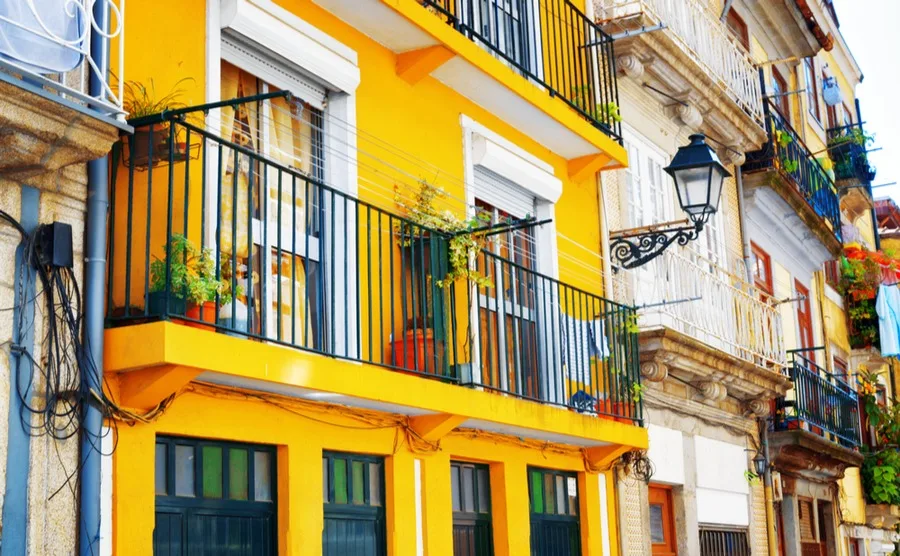Letting your Portuguese property could not only make owning a holiday home affordable, but make a tidy profit too. But how can you do it legally and what taxes will you pay? We explore the practicalities.
A holiday home in Portugal isn’t just a perfect bolthole and a great long-term investment. It’s also an asset that can provide you with a steady income while you’re not using it yourself.
Portugal’s tourism market was booming pre-coronavirus, with nearly 13 million holidaymakers visiting the country from abroad in 2017. Rental prices have gone down slightly since COVID, so please note that the prices in this article are what you can expect when normal travel resumes. There’s also an additional huge market for domestic tourists from elsewhere in Portugal. This includes city-dwellers summering in the Algarve, and country residents enjoying city breaks.
Seasonality is the first thing to understand before planning to rent out your holiday home in Portugal.
During the summer months, a two-bedroom Algarve apartment with a balcony and pool access can easily earn you from £150-300 per night. Occupancy and demand for such properties is consistently high in the peak tourist season. While demand does reduce in the off-season period, Portugal’s summer season seems to lengthen every year. Furthermore, tourism bodies continue to push initiatives to encourage more people to visit Portugal at off-peak times.
Of course, a holiday home in Portugal doesn’t have to mean somewhere in a beach resort. Portugal’s cities, especially Lisbon, are increasingly popular year-round destinations. The Airbnb market is thriving in these cities. Central apartments can bring in an average of around £115 per night all-year-round.
Find homes in Portugal via our property portal.

Could you rent out your Portuguese apartment or house?
The seasonality of renting your holiday home in Portugal
Seasonality is the first thing to understand before planning to rent out your holiday home in Portugal. If you’ve not lived somewhere like the Algarve before, the difference between summer and winter can prove staggering. Some resort towns have populations that multiply by ten or more in the peak months. Some can then feel as if they’ve “closed down” over the winter.
The main tourist season runs from June to September; The absolute peak is from mid-July to mid-August. During this period, it can feel like most of Lisbon and Porto descend on the Algarve! During these months, properties are in high demand. They’re often booked many months in advance.
Speak to our partner, Smart Currency Exchange, to learn how to protect your budget against risk.
There’s also a distinct “shoulder season” in the Algarve and – to a lesser extent – Portugal’s Silver Coast. Tourism activity picks up when the weather does – starting in April, and through to mid-November. This is when young couples and retired people often take their holidays, making the best of cheaper off-season flights and uncrowded destinations.
Portugal’s cities are slightly less influenced by the seasons. City breaks are always popular with tourists. Lisbon, in particular, attracts visitors all year round. After all, tourists from northern Europe can still often enjoy weather that’s notably better than “back home.”
Long-term vs. short-term
Most foreign buyers who decide to rent out their holiday home in Portugal decide to do so on a short-term basis. The same increasingly applies to local property owners. This is because they see far greater potential rewards from renting out homes to tourists on a “per night” basis.
If you do decide to rent your property out long-term, you’re unlikely to struggle to find a tenant.
This has led to a notable shortage of long-term rental properties. This has placed significant upward pressure on price. As such, if you do decide to rent your property out long-term, you’re unlikely to struggle to find a tenant.
One option you may wish to consider, if your property is on the Algarve or Silver Coast and you don’t plan to visit over the winter, is to arrange an off-season long-term rental. Many people choose to do this, renting on a monthly basis from October through to April. This ensures the property is occupied throughout the winter. Plenty of retirees look for such rentals. While you won’t see anything like the rents you’ll enjoy in the summer, you may decide that the guaranteed lower income is a good compromise.

How will potential renters find your property? (9091086 / Shutterstock.com)
Rental practicalities in Portugal
The four main things to consider if you plan to rent out your home are as follows:
- Marketing the property
- Ensuring you do everything legally, including obtaining the necessary licences and safety certificates
- Dealing with the logistics – such as check-ins, record keeping and cleans between visitors
- Process your income, which includes paying the right taxes!
Marketing
How you market your rental property in Portugal depends a lot on where it is, and who you plan to have managing it.
Airbnb is incredibly popular, particularly in cities. It’s an ideal platform if you live in the area and plan to manage all of your bookings, visitors and cleans by yourself. It can also work well for you if you plan to enlist a trusted friend to help.
Alternatively, you may decide to put everything in the hands of an agency or management company. Such firms usually have a favoured platform for advertising the properties they manage. This could be Booking.com, TripAdvisor or similar. Some agencies use Airbnb as their platform.
Legalities
In the past, plenty of people used to rent properties out to tourists in Portugal without taking the legalities seriously. However, in recent years the authorities have taken big steps to clamp down on illegal holiday rentals.
Penalties for ignoring the rules can be punitive, and it’s easy to get caught out. Since you are now supposed to include your rental license number on any property listing, the authorities can easily hunt down properties where these are missing. There’s plenty of anecdotal evidence suggesting that enforcement teams do just that.
The most important steps are to register your property as tourist rental accommodation with the local town hall (camara), and to obtain a rental license known as an alojamento local. Obtaining an alojamento local isn’t a particularly complex process, but it is lengthy and includes several steps. Some of these include being present for inspections.
For example, you need to obtain a fire safety certificate, demonstrate to local inspectors that you have working drainage and adequate door security, and ensure the home is properly furnished and equipped. There are also various items you need to have in place. These range from safety items such as a fire extinguisher and first-aid kit, to an official complaints book (livro de reclamações).
If you’re unfamiliar with these procedures (and don’t speak Portuguese), you can save yourself a lot of time and hassle by paying someone to assist. Your lawyer in Portugal can probably help. Alternatively, this is a service many management companies offer. Total costs of €600-800 for the work on this are fairly common.
If you’re ready to buy in Portugal, contact the Property Guides Resource Team to plan your next move. We can introduce you to a trusted estate agent or lawyer, or talk to you about currency. Call us on 020 7898 0549 or email [email protected].
Logistics
Whether you’re dealing with the practicalities of renting your holiday home yourself or outsourcing them to a third-party, there’s plenty to think about. For starters, you need someone to check guests in and out of their accommodation. There is also now a legal requirement to document who the guests are, and to keep records for the immigration authorities.
You also need to think about cleaning between guests, keeping on top of maintenance, and ensuring guests have someone to contact reliably in the event of a problem.
With so much to do, it’s unsurprising that many owners decide to put everything in the hands of a management company. If you decide to do so, it’s crucial to choose wisely. While there are fantastic companies doing this work across Portugal, it is a sector that attracts “fly by night” amateurs. Choosing the wrong firm could – at best – mean your property is poorly looked after and liable to attract bad reviews.
Existing expats will be more than willing to make recommendations, but do ensure that you seek multiple references.
Taxation on rental property
As with all tax issues, taxation on a rental property in Portugal can be complex. Your precise position will depend on whether you are a resident in Portugal, and how much money you make from your rental(s). It’s always best to seek the advice of a trusted accountant to ensure you’re not over-paying. You must also be wary of leaving yourself liable to double taxation. Tax on rental income in Portugal is always payable in Portugal whether you’re resident or not.
Taxes on short-term rentals are lower than they appear from the headline rates. There’s a “simplified regime” for rentals, where only 35% of the total income is taxed. The remainder is exempt, as it’s assumed to cover operational expenses. This means, for example, that as a non-resident you could see a headline rate of 28%, but only pay this on 35% of your rental income. This results in an effective rate of less than 10%.
Eight weeks making £1,200 per week over the summer adds up to £10,000, and leaves the property available to you for the rest of the year!
If you’re a resident, you have the option of including your rental income with the rest of your income; If you own multiple properties, you may find some benefit in setting up your rentals as an isolated business. You’ll need an accountant to advise on these issues. Finally, note that laws and taxes for long-term rental properties differ from those for short-term lets.
Tax returns in Portugal are due in April or May (depending on your exact situation), for the previous year. Bills are usually issued in August for payment by the end of the month.
Healthy profits
Even if you only decide to rent out your Portuguese bolt-hole for the peak summer season, the rewards can be considerable. Eight weeks making £1,200 per week over the summer adds up to £10,000, and leaves the property available to you for the rest of the year! This income could go beyond helping you pay your mortgage and take you into profit. A holiday home in Portugal can prove an extremely rewarding investment.












